Perhaps Practice Makes Perfect – The KZ ZS10 Pro Review
Another day, another new IEM from Knowledge Zenith (KZ). Seriously, I’m doubting whether KZ employees can keep the product lineup straight. By my count, they have released more than 35 IEMs, each of which is named a cryptic 2-3 letter code usually followed by a number.
My experience with KZ is primarily with their higher-end products, so I’ve missed out on most of the ‘bang-for-the-extremely-low-buck’ options that initially made them famous in IEM circles. I started with the ZS5 version 1, which has a very fun, if not overly-refined sound signature. Like many others, I liked what I heard and was hooked into the fun world of KZ IEMs.
- Big, deep bass is fun!
- Tame highs make them suitable for long listening sessions.
- Premium fit and finish look terrific.
- Size and shape are very comfortable.
- Affordable!
- Yet another pin standard rendering aftermarket cable for most other models useless.
- Plain and uninspiring bundle of accessories.
Recently, I’ve done a head-to-head comparison review of the (then) flagship AS10 and BA10 models, which both offer a much more balanced sound than the lesser-priced models. Up for consideration, today is the new top-of-the-line ‘Pro’ monikered version of the KZ ZS10 – KZ ZS10 Pro. This IEM features a hybrid design with 4 balanced armatures plus 1 dynamic driver per side.
Less expensive KZ models are widely considered the epitome of budget hi-fi, and have come to represent much of the allure of Chi-Fi. Namely, very inexpensive, yet impressive-sounding personal audio equipment made in China. However, when auditioning products at the higher end of the KZ price scale, expectations of quality and performance must be set accordingly. These models begin to compete with products from established audio companies.
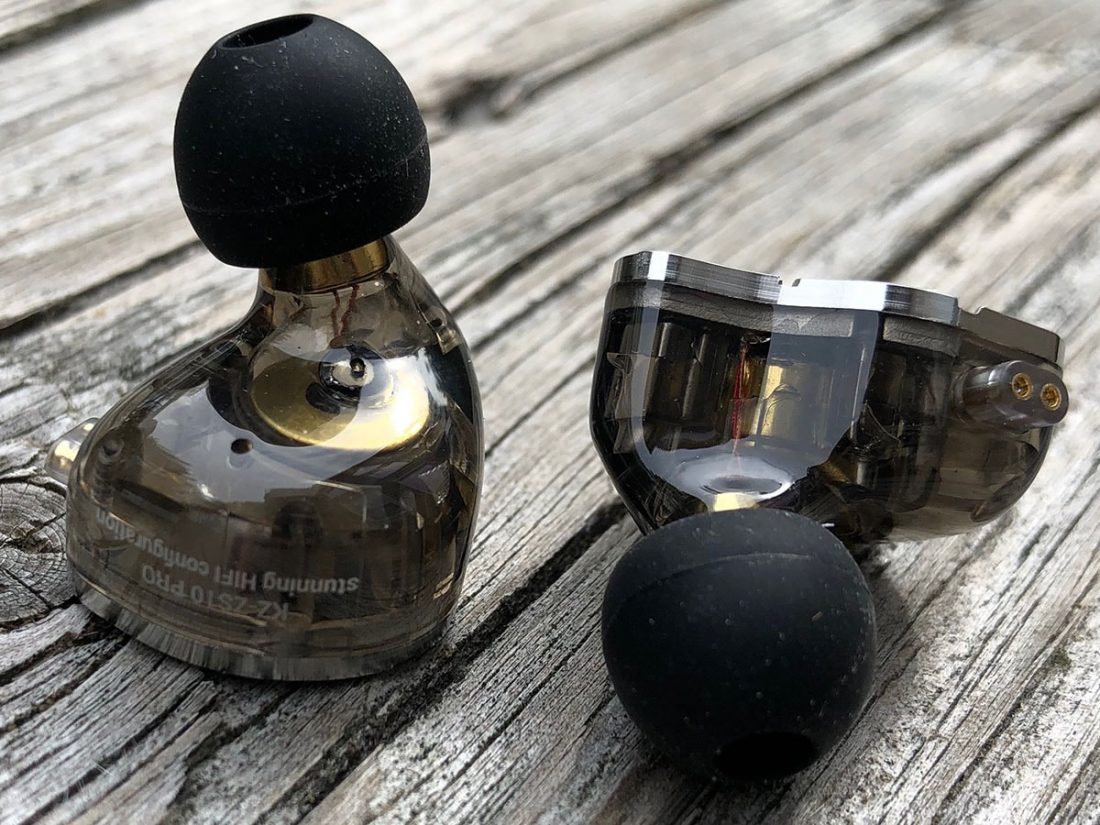
Since it seems I may be reviewing KZ IEMs on a fairly regular basis, let’s get our customary company introduction out of the way.
KZ Overview
KZ was founded in 2008 by classical musician Zen Li and former Audio-Technica engineer Keith Yue. It is a public brand for the Shenzhen Yuanze Electronics Company located in Guangdong China.
KZ has generated a huge amount of industry buzz by creating products that have seriously redefined the ratio of price to performance. There has been seemingly unending hype over KZ (as of writing: almost 3000 pages in a single Head-Fi post). The caveat? Most discussions conclude with the idea that although their IEMs may not produce the absolute best sound, they are difficult to beat at the low price point.
Recently, some of their models which are more technologically advanced and offered at slightly higher price points have elevated the brand as a mainstream competitor. However, KZ has received criticism for copying the design and form factor of high-end models from Campfire Audio and Audio-Technica.
KZ IEM Series
KZ is also known for releasing many different models, so it gets convoluted when trying to figure out their hierarchy of IEMs. In a nutshell, the KZ offerings include the following series:
- AS – AS6, AS10 (balanced armature drivers – # denotes total drivers)
- AT – ATE, ATES, ATR (single dynamic driver)
- BA – BA10 (balanced armature drivers – # denotes total drivers)
- BT – BTE (hybrid BA and dynamic drivers – Bluetooth)
- ED – EDR2, ED4, ED7, ED9, ED12, ED15, ED16 (typically a single dynamic driver – ED15 and ED16 are hybrid)
- ES – ES3, ES4 (hybrid – 1 BA + 1 dynamic driver)
- HD – HDS3, HD9 (single dynamic driver)
- ZS – ZSA, ZSE, ZSN, ZSN Pro, ZSR, ZST, ZST Pro, ZST Colorful, ZS1, ZS2, ZS3, ZS4, ZS5 (v1 and v2), ZS6, ZS7, ZS10, ZS10 Pro (ZS1-3 and ZSE are dual dynamic driver, other ZS are hybrid)
Whew. I tried to warn you.
Currently, 5 drivers per IEM are in KZ’s top of the line models. You’d swear that 5 drivers per small IEM is an impressive enough feat of engineering, but the AS16 with (you guessed it) 8 drivers per side was recently announced. Unfortunately, more isn’t always better in the KZ lineup, so I look forward to hearing them myself.
Packaging and Accessories
Unlike the larger black display boxes included with the BA10 and AS10 models, the KZ ZS10 Pro uses the more common, small white KZ box design. A white cardboard box slides out from a thick paper sleeve, topped with a thin clear plastic cover. It’s small, simple and works fine, but doesn’t convey an intrinsic sense of quality.
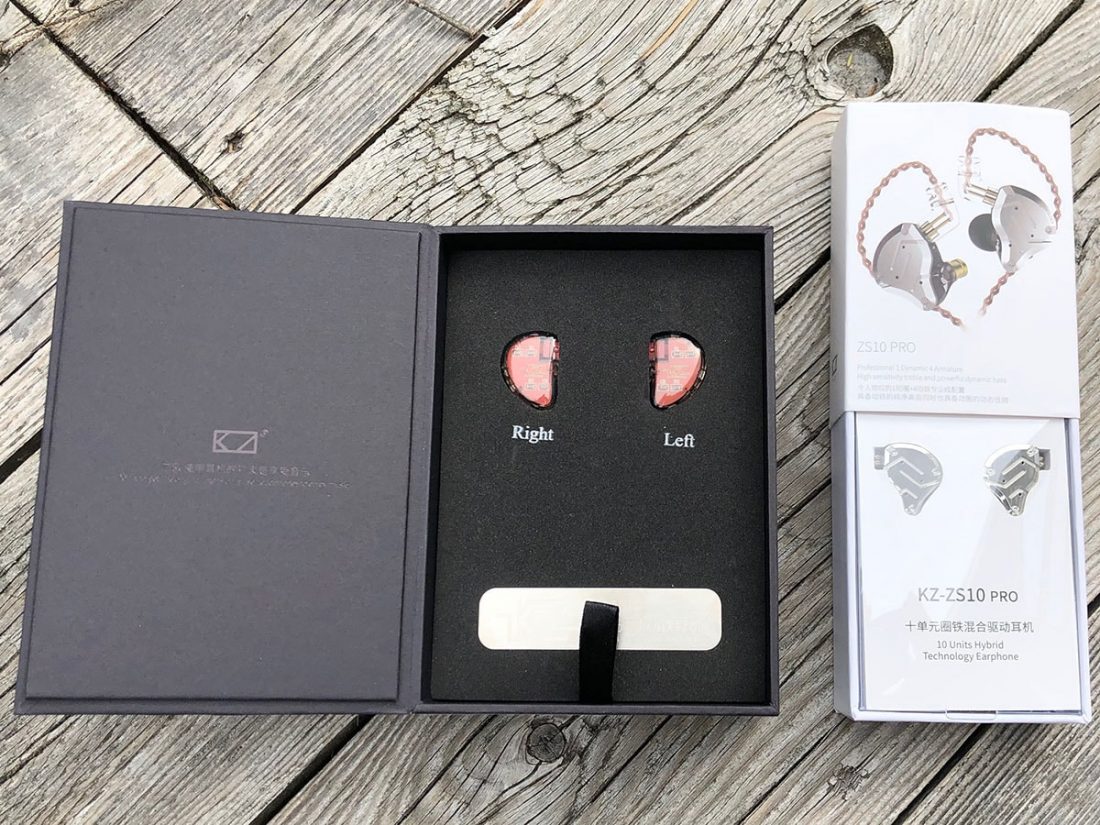
No fancy (but ultimately useless) metal name plates (as per the BA10 and AS10) are included. Nor case, nor storage bag, nor adapter, nor much else. Just 3 spare ear tip pairs (small, medium and large), a detachable cable, a safety and instructions guide and a 12-month warranty card. The bare minimum of what is expected these days.
Cable
Let’s get this out of the way first: contrary to popular opinion, I actually like KZ cables and think they are well designed and nicely made. I like the 2-3 inches of stiff memory wire at the IEM pin end that holds its shape around the top of the ear. I find it works well and is perfectly comfortable once shaped to your particular head.
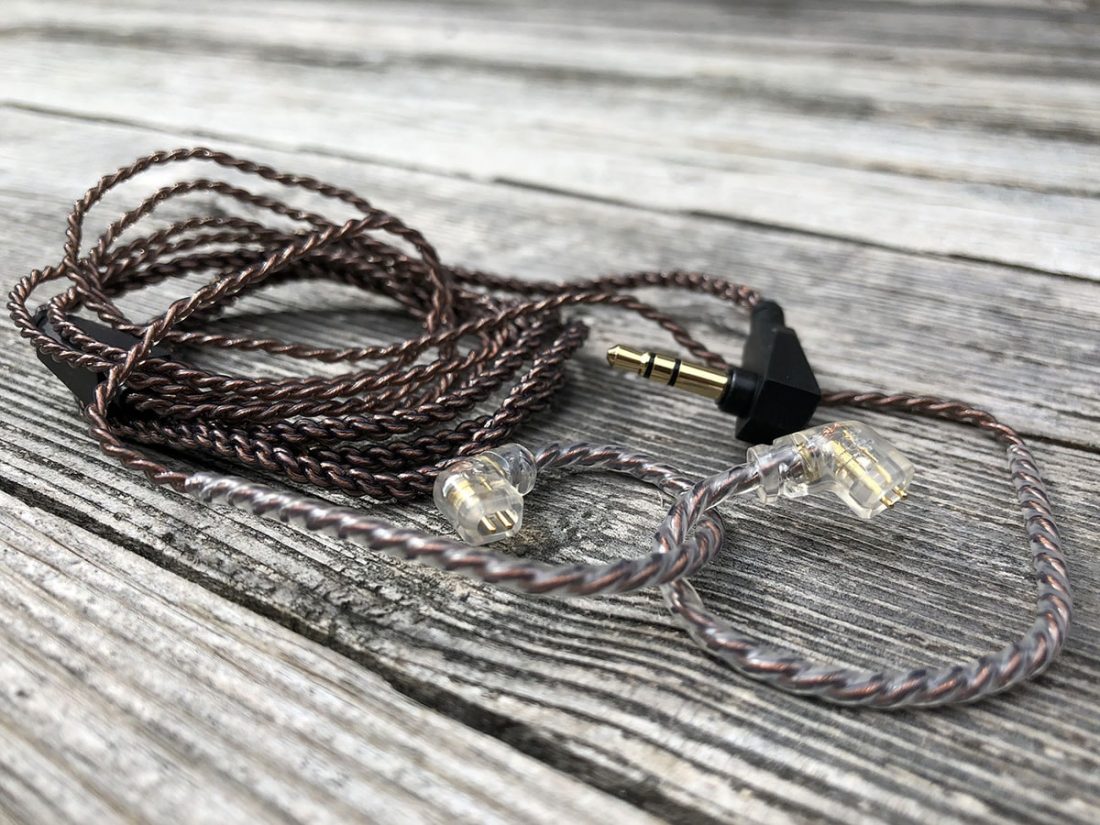
The KZ ZS10 Pro’s cable appears to be much the same as the detachable, bronze colored, braided cable included with the AS10 model. I find it minimally microphonic and nicely flexible.
The standard 90-degree black rubber 3.5 mm TRS jack and simple black rubber Y-splitter are customary KZ. Nothing especially fancy, but it looks and feels reasonably premium. My only real complaint is that the Y-splitter is located about 50 mm down the cable. Personally, I’d prefer it 15-20 mm higher up.
The angled, gold-plated, IEM pin connections are 0.75 mm in width (the usual from KZ). However, the jack adds yet another variation to their lineup (in addition to the straight and other angled version). The pins are recessed in the cable connector, while the sockets protrude from the IEM body. Only the ZSN and ZSN Pro currently use this design.
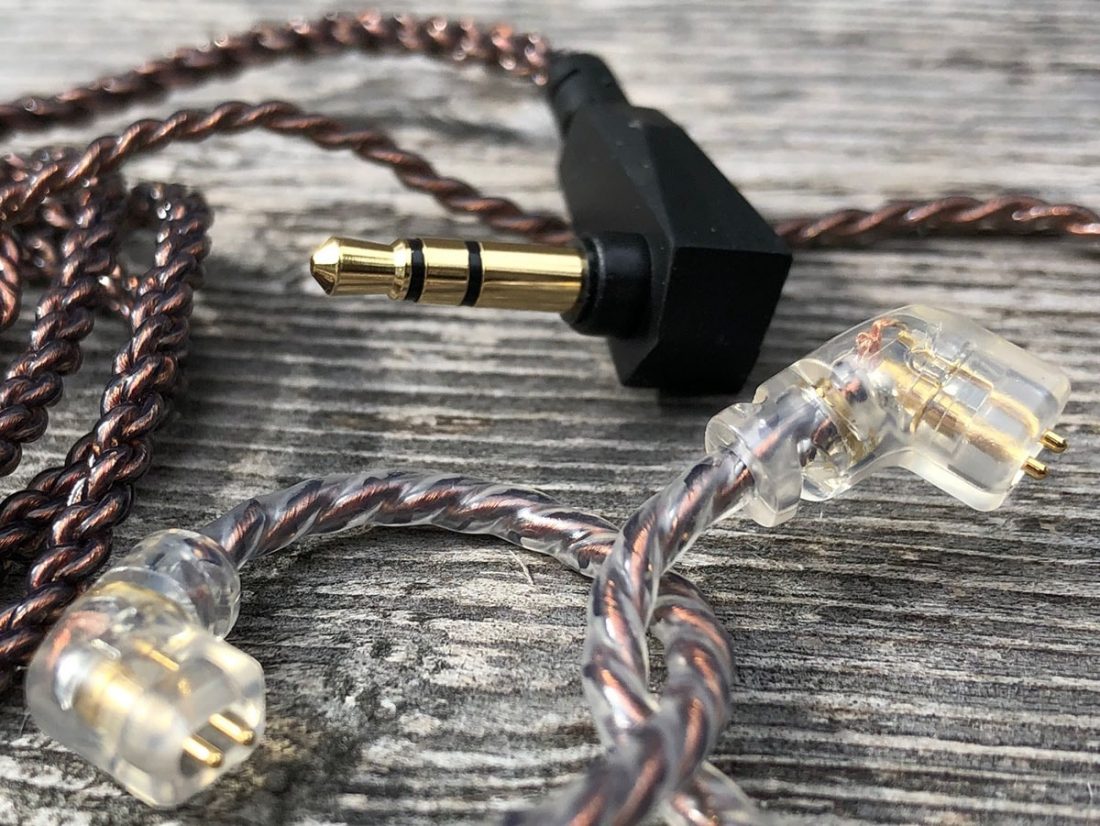
I think the new cable pin setup creates the most secure connection of all the KZ options. Let’s hope that this becomes the standard used on all models going forward.
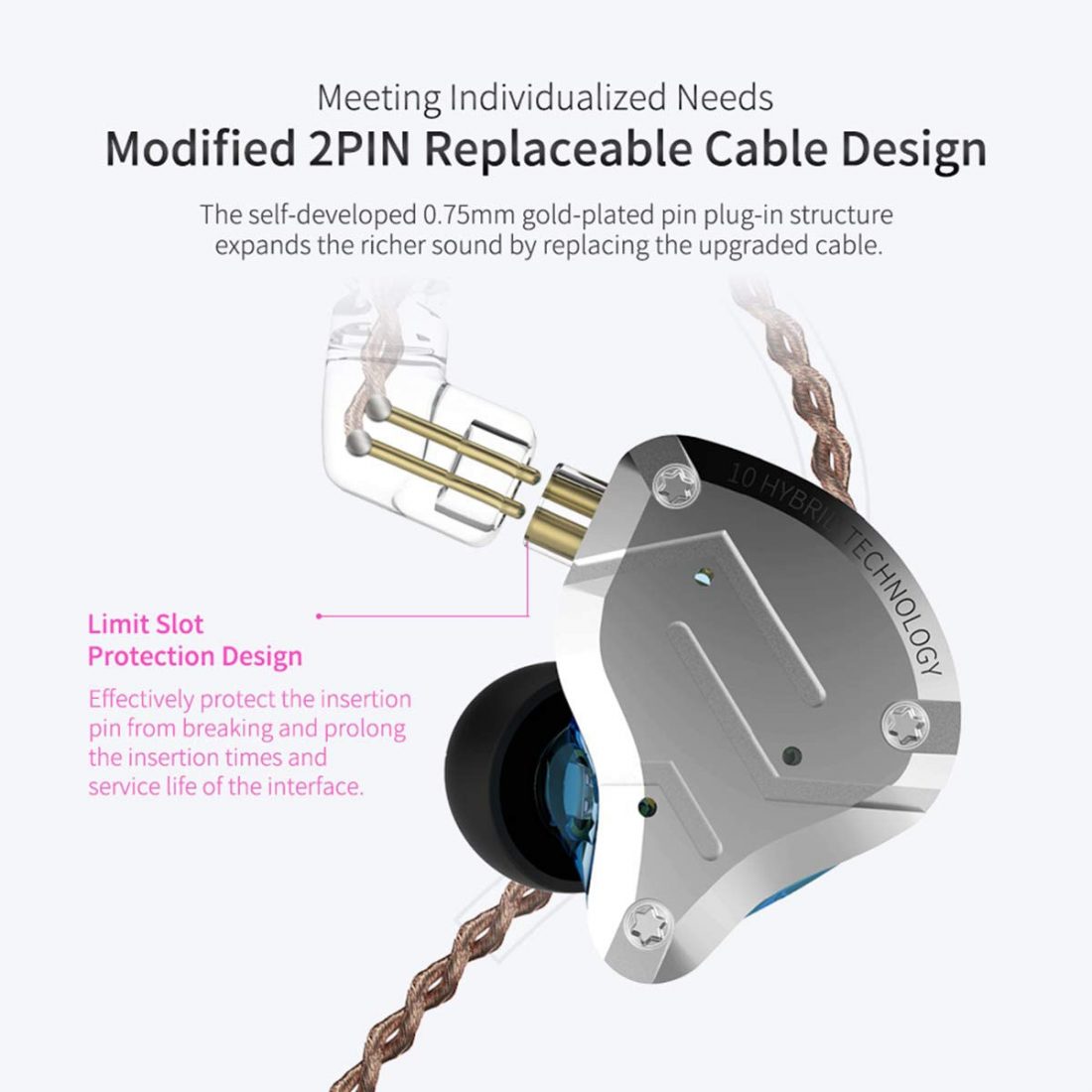
Ear Tips
These IEMs only come with the stock KZ star-patterned, black ear tips in small, medium and large sizes. No foam tips are included. The good news is that they are relatively comfortable, work as expected and provide decent isolation and a good seal. KZ claims 26 dB of noise reduction.
As seems to be the case with KZ, I found the large size to work best for me, although I typically use medium-sized ear tips with other IEM brands.
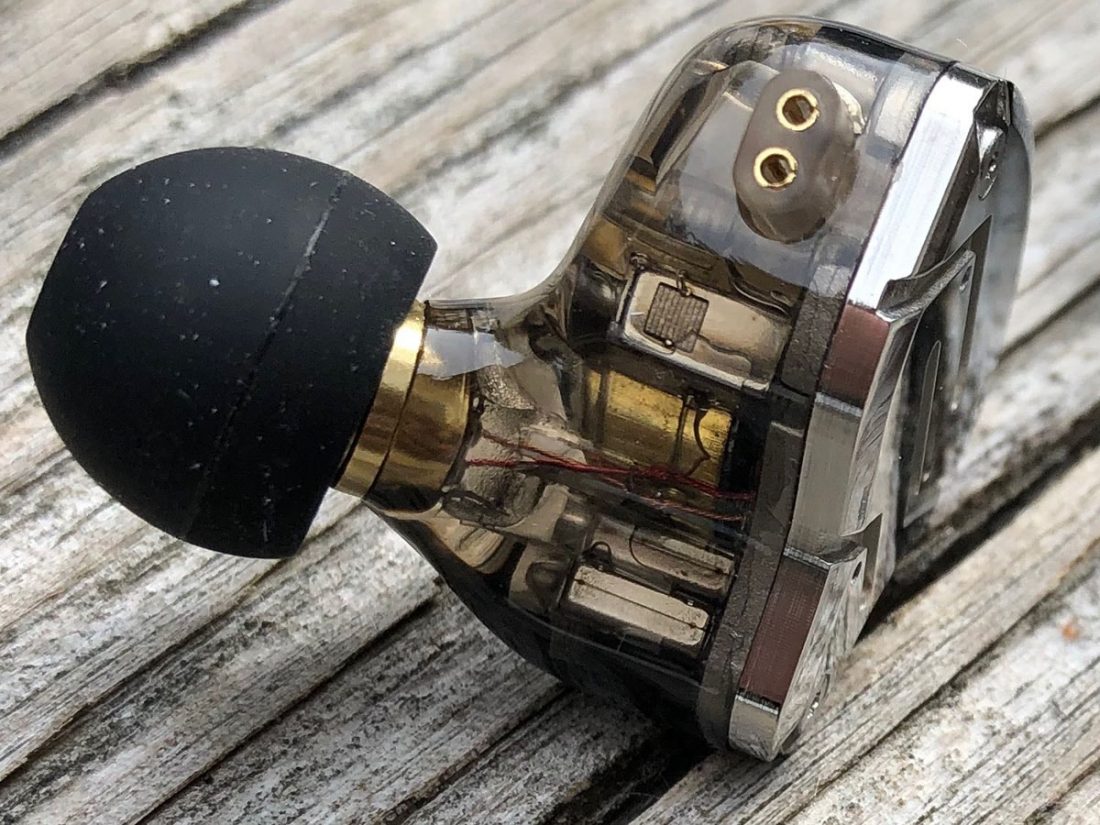
Build Quality
To say the KZ ZS10 Pro is merely attractive does them a disservice. The design is highly reminiscent of the ZSN and ZSN Pro. The mirror-finished, stainless steel faceplate is simply gorgeous, albeit prone to fingerprints. It is held on with three tiny star-shaped screws, features three tiny round ports and has three engraved accent lines. “10 Hybrid Technology” is written on the plate’s beveled edge.
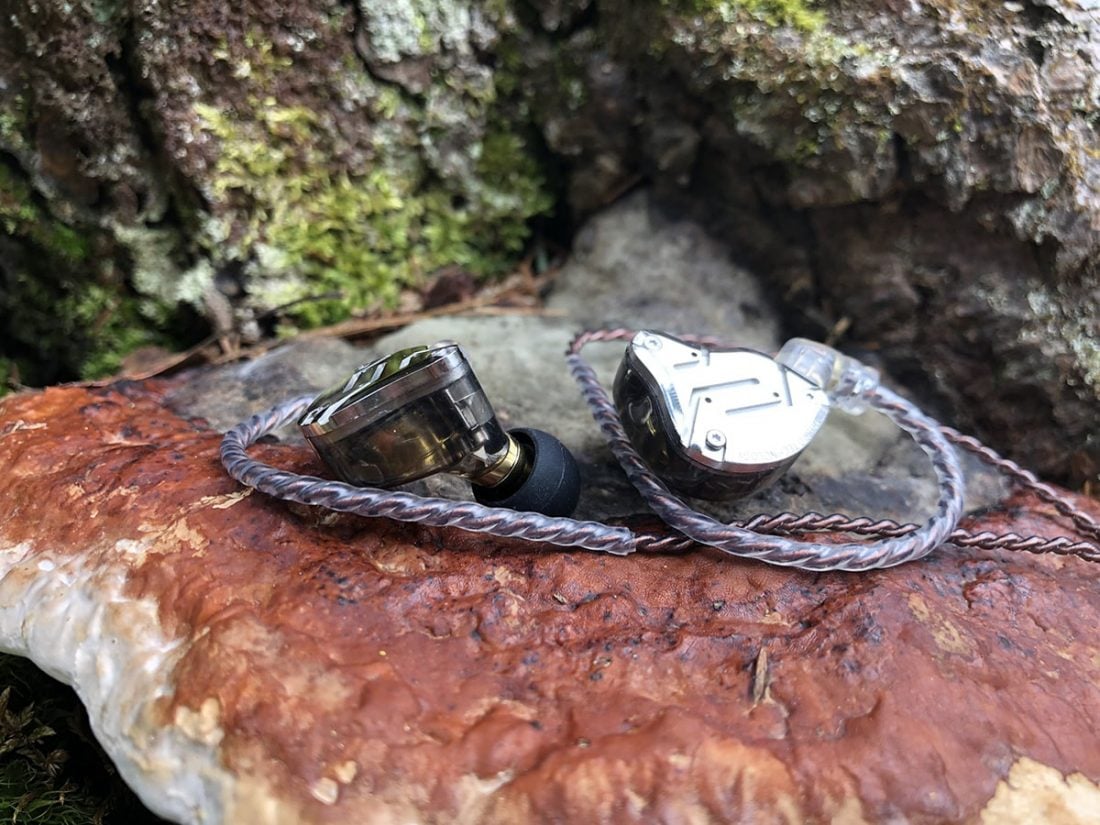
The body is made of a colored, semi-transparent plastic, which displays the plethora of drivers and wires contained within. Fit and finish are superb and the body to faceplate mating is spot on. “KZ-ZS10 Pro stunning HIFI configuration” is printed below the faceplate writing. The nozzle is a brass colored aluminum alloy tube, ridged on the end to hold the ear tip and contains a small silver screen.
This is a fantastic looking IEM, certainly a standout at its price point, and quite simply far and away more attractive than the AS10 model. The all-plastic design of the AS10 is comfortable, but I am just not a fan of how that IEM looks. The ZS10 Pro is equally as comfortable and much better looking.
Driver Configuration
Each IEM uses two KZ 30095 BA drivers for high frequencies, two KZ 500060 drivers for midrange frequencies and a single 10 mm Tesla double magnetic dynamic driver for low frequencies. A tiny PCB frequency dividing board (crossover) resides inside to split the appropriate signals to each driver.
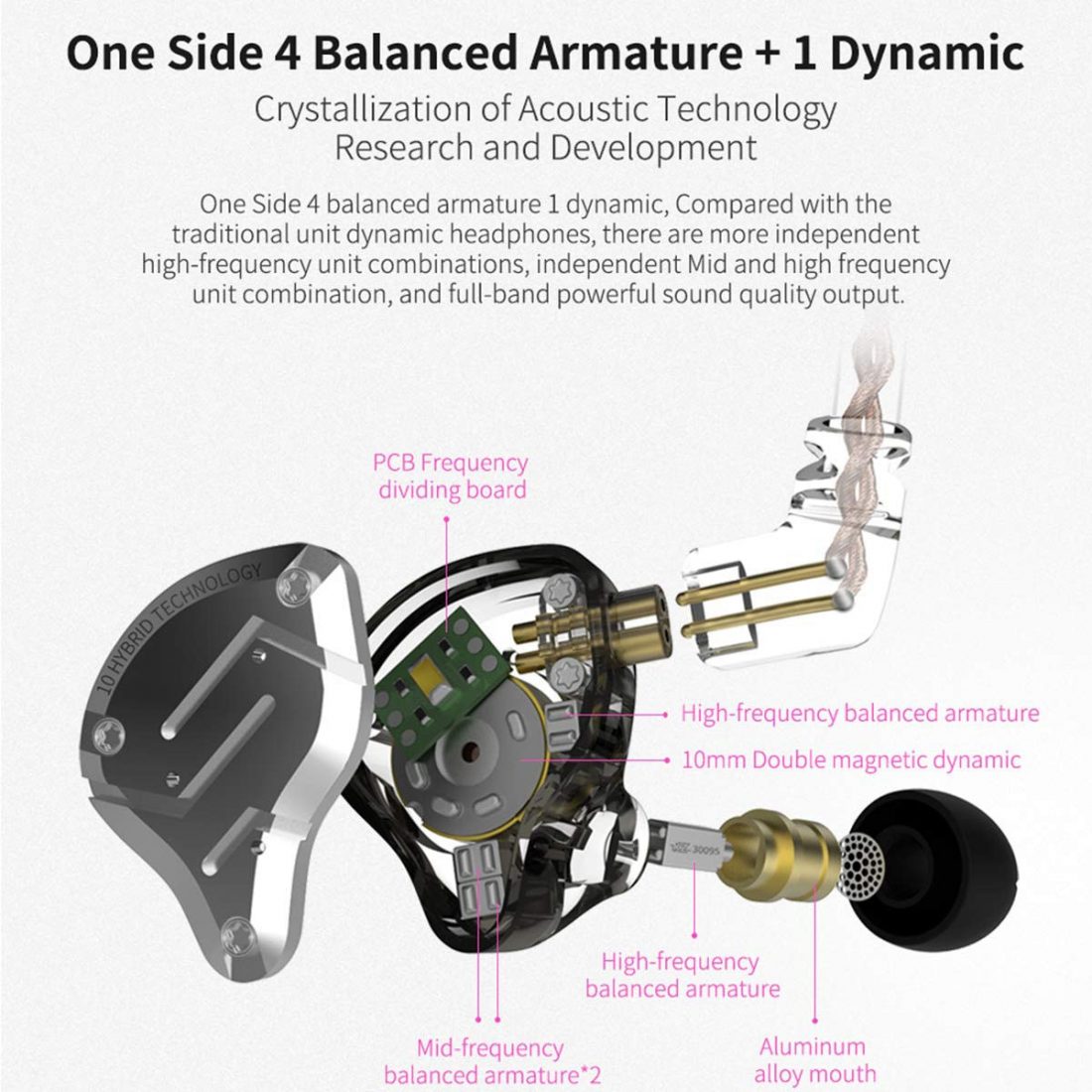
One of the high-frequency drivers is located in the tip, rather than in the body of the IEM, which means it is closer to, and more directly pointed at the eardrum. This is similar to the version 1 design of the ZS5; version 2 placed both high-frequency BAs in the tip. A common complaint is that this change made the sound too piercing and sharp compared to the v1.
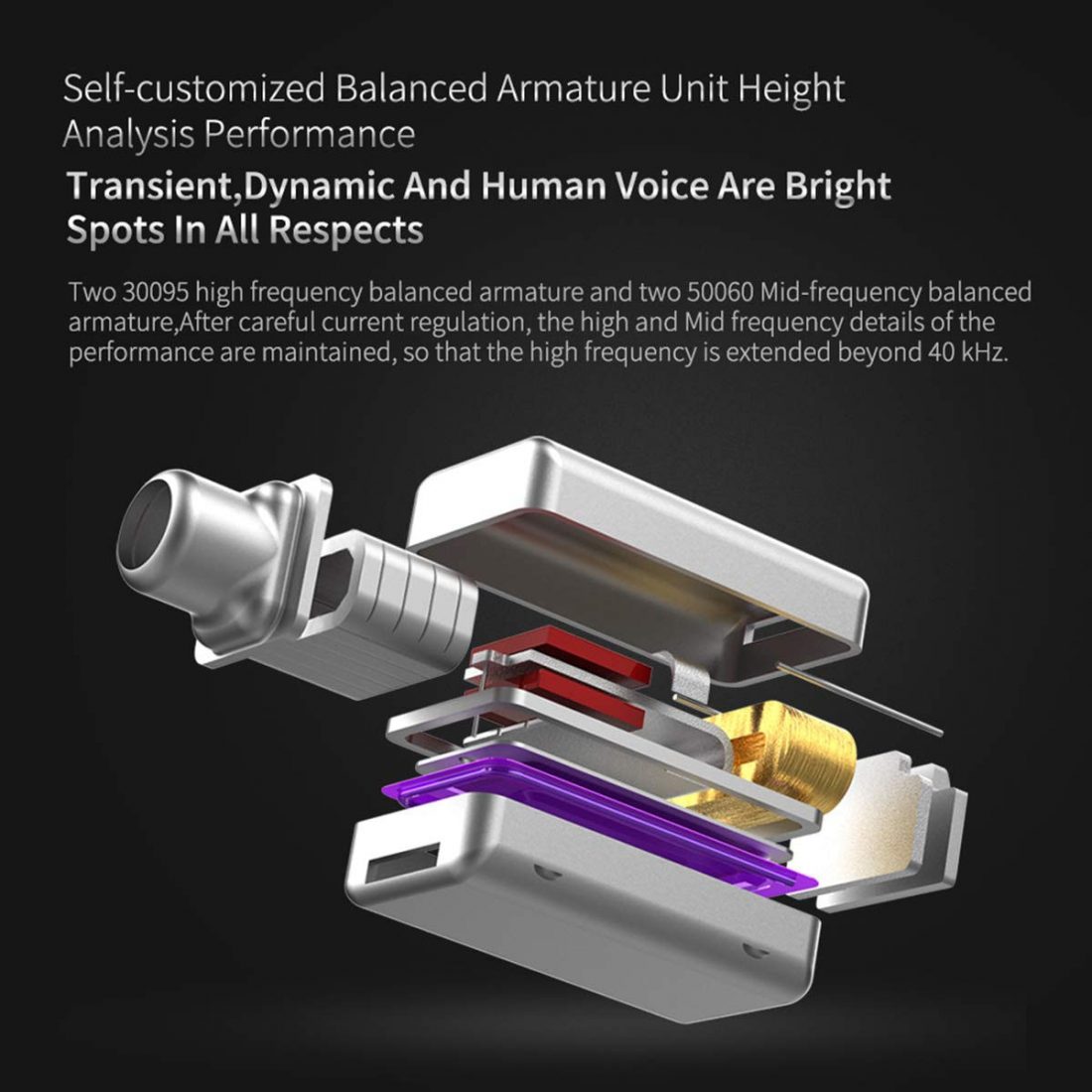
KZ claims that the high-frequency drivers are capable of reproducing frequencies beyond 40,000 Hz. Since this is far outside the human hearing range, we will have to take their word for it. Here’s what KZ has to say about the dynamic driver:
Well, I don’t know about all that, but a benefit of using a dynamic driver (rather than a BA) is to achieve extended low bass response. So, compared to an all balanced armature design like the AS10, the KZ ZS10 Pro should be able to dig a bit deeper. Let’s talk about how they sound next.
Sound Quality
Post any pictures of a new KZ product online and you will be inundated with questions along the lines of, “how do they sound compared to this KZ model?”. Everyone is interested in how the newest release sounds. The front of the box says that it features “high sensitivity treble and powerful dynamic bass”. Who am I to argue?
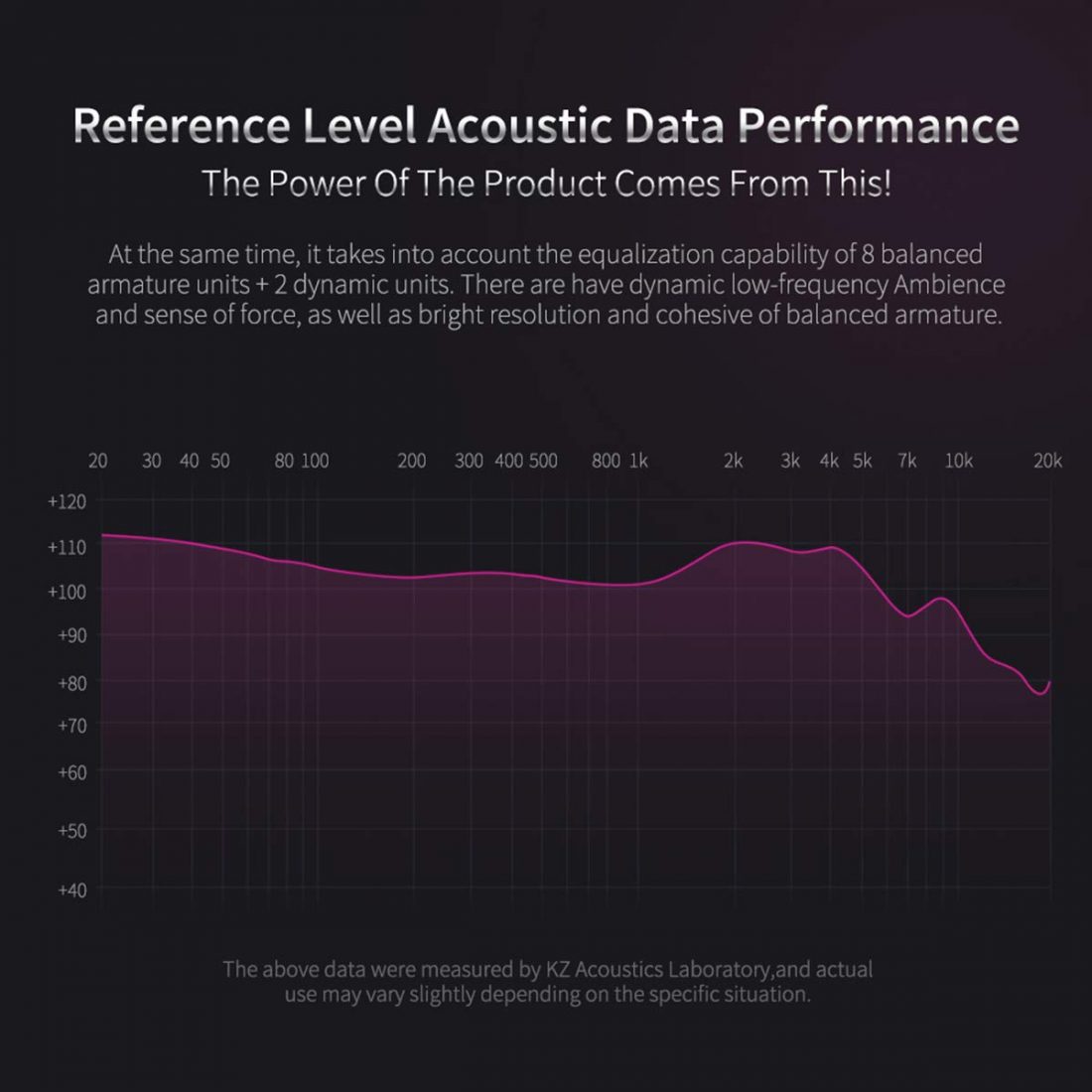
I listened to the ZS10 Pro with a variety of sources, including an iPhone dongle, a Little Bear B4-X portable tube amp, a JDS Labs C5D and a Pete Millett NuTube hybrid desk amp. It is extremely easy to drive and honestly don’t benefit much from powering them on anything beyond the iPhone. Just what I’m looking for in portable IEMs.
The characteristic KZ v-shaped sound signature is still there. Somewhat. It’s actually nicely balanced, like the AS10 and BA10, without crazy piercing highs or an anemic midrange. Bass is somewhat elevated (which to me means ‘fun’ sounding), mids are oh-so-slightly recessed and the treble is nicely rolled off before things get sharp.
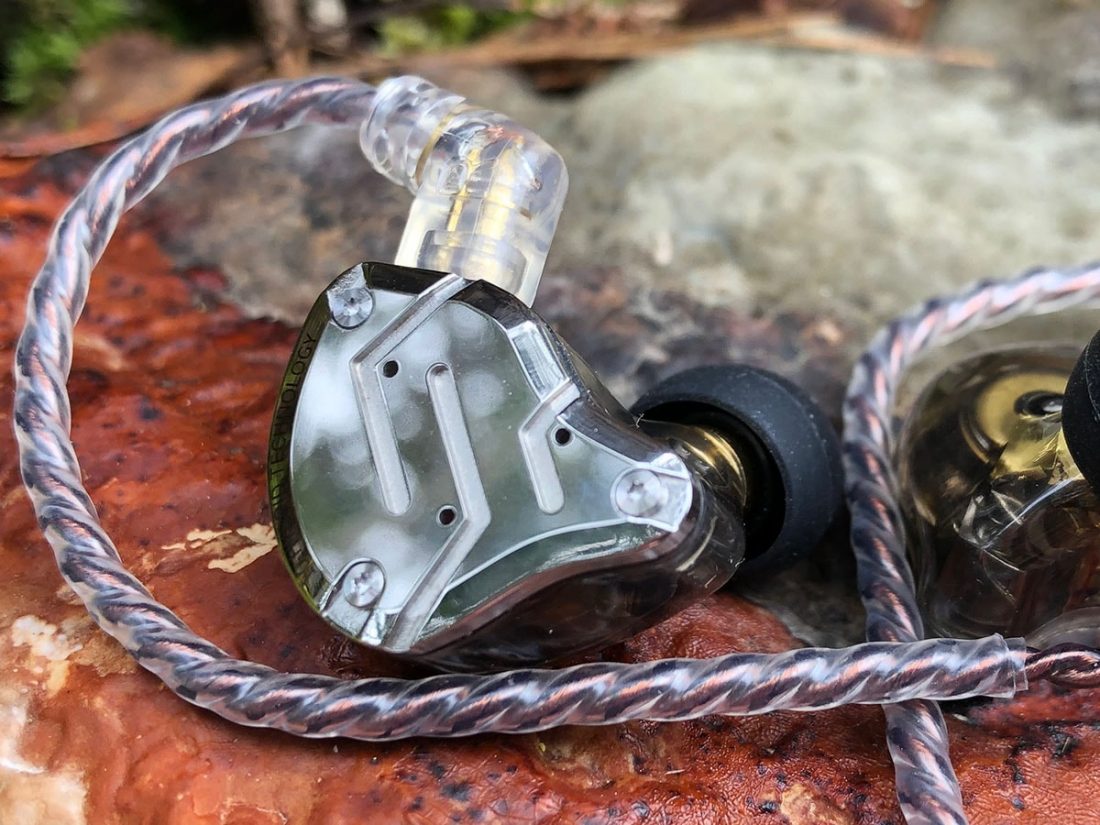
Bass
Love it. The low end is tight, deep and controlled. It sounds fuller than the “all BA” AS10, but remains clear and taut. I didn’t experience any bloating or bleed into the midrange. The IEM gives plenty of depth, but not at the expense of becoming unbalanced with how rest of the audio range is presented.
Midrange
The mids are consistently laid back and never shouty. Voices sound natural and timbre overall is quite good. Possibly a bit more elevation in the mids would blend the frequency extremes together a little more. I (perhaps psychosomatically) sometimes felt like I could tell there are multiple drivers creating all those sounds, rather than hearing a perfectly uniform presentation from a single source.
Treble
Compared to the AS10, the treble in the ZS10 Pro comes across as slightly more rolled off. This tends to make the overall sound a bit warmer, and avoids any harshness or brittleness in the high end. Coupled with the deeper lows, this really moves the sound into my preferred zone.
Overview of Balanced Armatures and Dynamic Drivers
In-ear monitors (IEMs) use either Balanced Armatures (BA) or Dynamic Drivers (DD) to produce sound.
Dynamic drivers are what you think of when you picture a loudspeaker. A voice coil is attached to a moving diaphragm to move air and produce sound. DDs are tried and true, durable and cheap.
A single DD can cover the entire frequency range without a crossover and is capable of extended bass response.
While traditionally used in hearing aids, BA drivers are tuned to work in a specific range of frequencies. A crossover circuit is used to split the signal to multiple BA drivers covering multiple frequency bands.
BAs are considered balanced because the design features a coil around an armature suspended and centered between two magnets.
They are smaller than traditional dynamic drivers and tend to better treble performance with speed and detail, but often sacrifice bass performance. Since multiple BAs are required to cover a wide frequency range, they are typically more expensive.
Hybrid IEMs combine DDs and BAs in a single housing in an attempt to capitalize on the benefits of both designs.
The Challenge of In-Ear Monitor Reviews
I’d like to add a caveat. IEMs are notoriously difficult to review and compared to full-size headphones, it is problematic to trust that review findings will be applicable to all readers.
While the size of one’s ear may impact comfort or sound of a full-size headphone, small details like the inner shape of a reviewer’s ear and the fit of an IEM greatly impacts not just the listener’s comfort, but dramatically changes the perceived performance of an IEM.
This is compounded by the plethora of ear tip sizes, materials, and shapes (which may or may not be included with the IEM), all of which uniquely fit different people. Most significantly, the quality of the ear tip seal within the ear changes the sound. So, beware dear reader, what suits one reviewer may not be applicable to you.
Technical Specifications
- Drivers: 4BA + 1DD
- Impedance: 30 Ohm
- Sensitivity: 111 dB/mW
- Frequency Response: 7 Hz – 40 kHz
- Cable: 125 cm
- Plug Type: 3.5 mm TRS unbalanced
- Pin Type: 0.75 mm (New angled, recessed version for ZSN or ZSN Pro)
- Mic: Optional
- Color: Black (as reviewed), Purple, Blue
- Weight: 32 g
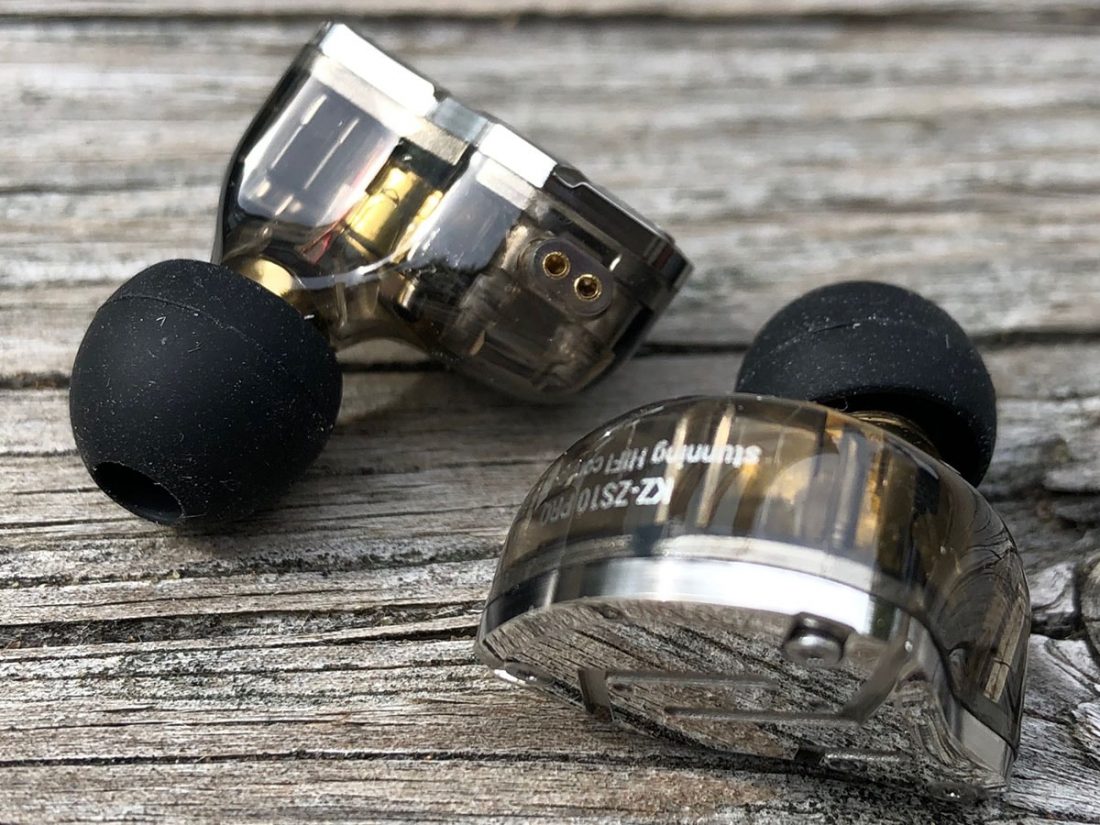
Conclusion
Perhaps practice does indeed make perfect. KZ started by making ‘cheap’ (forgive me) but fun IEMs that sold very well. So they made more. A lot more. They transformed and progressed. Successive models have certainly improved sound quality with a modest increase in price. Not every model is a home run, but things have been moving steadily in the right direction.
It sure looks like KZ must listen to the feedback they receive and put that knowledge into new product design. The recent top of-the-line AS10, BA10 and now the ZS10 Pro models are displaying this evolution from ‘fun but cheap’ to ‘good sound at a moderate price’. Chi-fi is beginning to mature and KZ continues to be at the front of the pack.
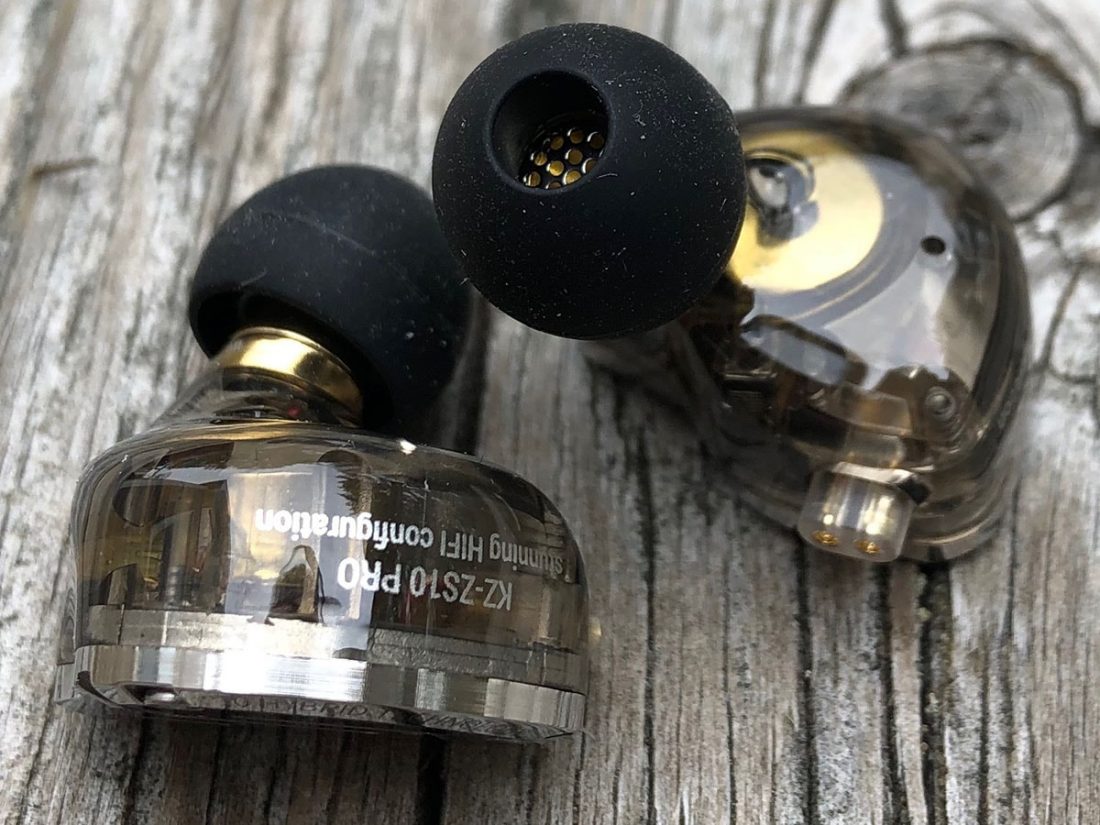
The ZS10 Pro is a great IEM. It isn’t a scalpel for critical listening. Nor is it a bass cannon for the ‘only-EDM’ crowd. It doesn’t have to be. Paired with rock, pop, blues or anything with a back beat, it gets your toes tapping and your head bobbing. Success in my books.
Long live ZS10 Pro the king!
So yes. The KZ ZS10 Pro is my new favorite IEM from KZ. Sorry AS10, you weren’t the king for very long.
Long live the new (better looking and more fun) king!
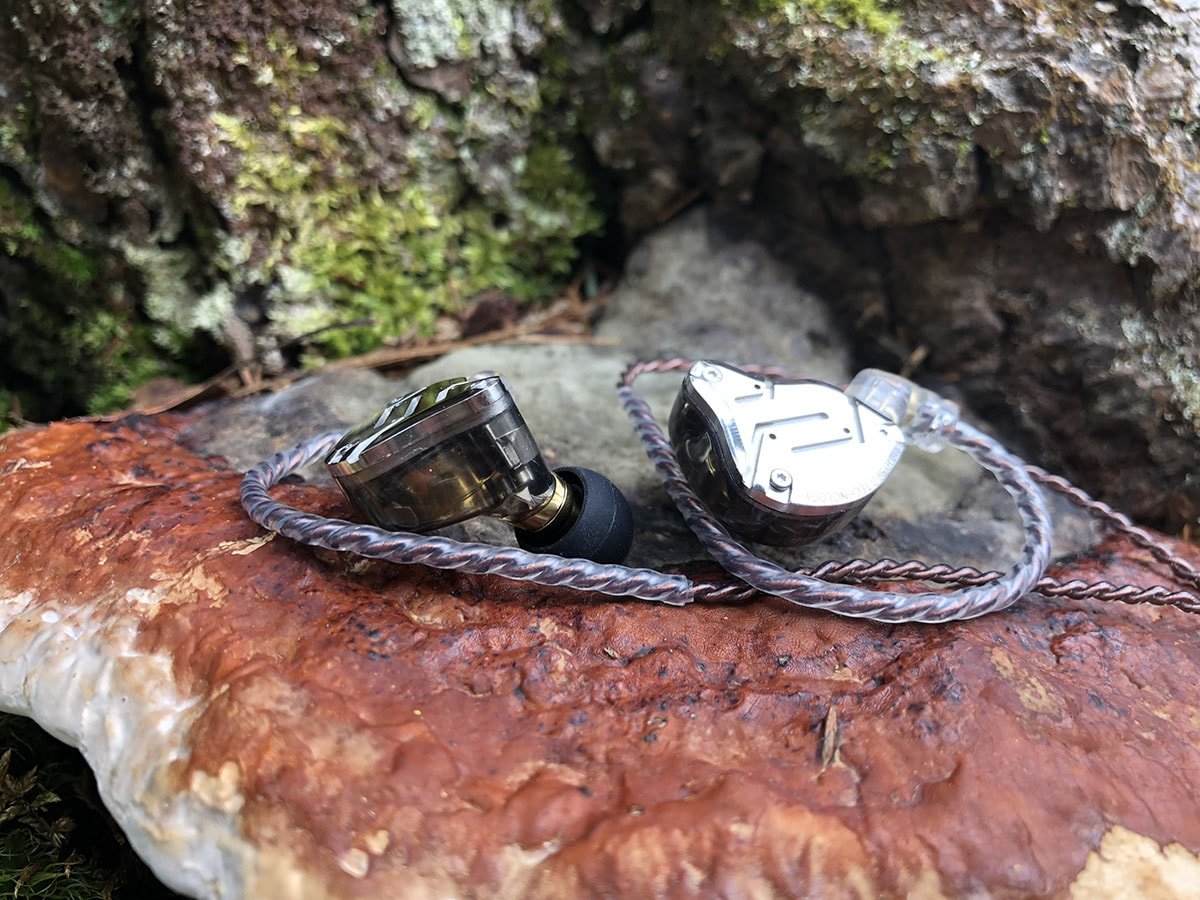
“Sorry AS10, you weren’t the king for very long“
The hype!
I even got excited when I read that. No more doubts. I’ll buy mine already. Always doubt if it was worth to retire my zs10 for the AS10 … but I think the time has come to do it and curiously it will be the ZS10… PRO
Just the kind of review i was looking for. Was about to buy AS10 but now i am happy to have read this before i go on purchasing “ZS10 Pro”.
Just one persons opinion but one that helped me out a lot!
Glad to help! Cheers!
whats size are the ear tips 4mm or 5mm
cheers
casually stumbled on your page and man i totally feel you in “But I do have a deep appreciation for music, founded at a young age, and curated over the years.”
this review had just sealed the deal for my purchase.
Hey. Thanks! Check out the ZSX review as well before buying. 😉
My first KZ purchase was the Zs10 Pro IEM. I’ve since shelved all other headphones, no matter style, type or price. I upgraded the cable and the eartips and won’t be looking back. These IEM’s are definitely Pro!
I have these too. What do you mean with upgrades the cable? Which one are you using? Thanks
Just received my pair yesterday. I chose the blue colored shell and they are stunning! Everything you described here is spot on in my experience. I haven’t been able to take them out! Some favorite tracks so far listening to these are “5am by DayDin” (hard hitting bass EDM) and “Mountains by Charlotte Day Wilson” (gorgeous vocals) and couldn’t be happier with the performance. Powerfully extended bass AND smooth detailed female vocals? What more could you ask for in an IEM for under 150 bucks?
Which one best for someguy listen hip hop or rnb? Szn10 pro or t2? I was used before cx300 and that earphone was really good for me. Szn10 pro better than that?
This review is absolutely fantastic. I hate the tropical reviews we see online and this one separates itself from the masses by getting straight to the point. My thoughts on these headphones are also extremely positive and mirror yours in many areas. Here we have it, the Chinese have most certainly put out a product that mirrors the best out there for a 10th of the price. The big boys can’t compete with this, none of them. If the world wasn’t full of reviewers receiving free units for positive reviews, the companies like KZ would be dominating the market.
Hey! Thanks for the kind words! Happy listening!
Dear Trav, thank you for the reviews of both the KZ ZS10 Pro (above) and the KZ ZSX. Detailed and yet easy to understand. Great work! I love my KZ ZS10 Pro too as I found them to be fun, engaging, and not lacking in technicalities. Would love to know your views on the CCA C12. Best Regards
Well done review. My son gave me a pair of the zs10 pros. I read your review to see if others felt the same way about them. You’re right on about the top end. I am an old guy, and I can’t believe the sound that this piece of hardware produces. Again, good job!
I like your style too. Thanks for the review!
Well done
Your review is honest and feels like a good friend explaining life and sounds casually. Keep it up….
I received these yesterday and find it hard to believe how good they sound to these old ears. I have many thousands invested in fairly high end equipment including expensive headphones, but these totally inexpensive units meet my needs completely. I’m happy to see that I’m not completely crazy!
Awesome! Enjoy the music. It’s amazing what fidelity is possible with inexpensive IEMs these days!
I just bought a pair of these based, in part, on this review. I found them to be in some ways the opposite of how you described them. I felt that the bass was weak and the treble to be somewhat sibilant, over-emphasized. I am going to listen to them some more but I was pretty disappointed with my initial experience.
Hi. I’m sorry to hear they don’t meet your expectations. If the bass seems weak, I highly suggest to try a few different ear tips to get ones that fit your ears well. Fit makes such a huge different in how IEMs sound.
Hi, What would you recommend be an upgrade over KZ ZS10 pro if my budget is about 500-600 dollars. I only want to upgrade if the difference is quite noticeable. Are there any below that range?
Hi. Unfortunately (or fortunately) there are very MANY great options under that price range. I suggest taking a look at our recent IEM reviews and see if something catches your eye. There are a ton of different sounding tunings, signatures, driver configurations, etc that make very noticeable differences. ‘Better’ is always in the ear of the listener, and not everyone will agree on what’s best.
Just had a two hour listen with my new KZ ZS10Pro’s on and they were incredible! Even more incredible for £45! So glad I took the punt. I almost dragged into the ‘they are so cheap they must be rubbish’ way of thinking, but now I am cured of that!!
Great review too. Am looking forward to my next gig playing bass with these on.